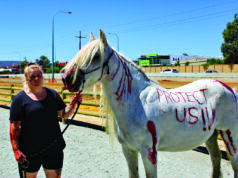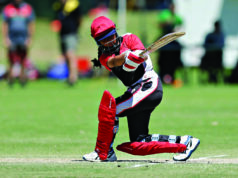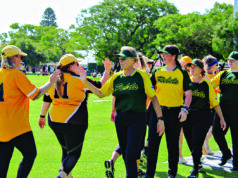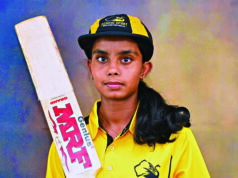A statement by the Australian Federation of Islamic Councils (AFIC) has condemned the recent US airstrikes on Iranian nuclear facilities, calling them a threat to global stability.
Dr Rateb Jneid, who is President of AFIC and a board member at local school, described the military action as a “grave escalation” that could spark a wider regional conflict.
The AFIC statement criticised the strikes as “blatantly illegal under international law” and claimed they contributed to a broader pattern of “military interventions” in the Middle East.
“The Australian Federation of Islamic Councils (AFIC) strongly condemns this weekend’s U.S. airstrikes on Iran’s nuclear facilities. These actions, which reportedly targeted Fordow, Natanz, and Isfahan using B-2 bombers and bunker-buster munitions, mark a dangerous and unjustifiable step toward full-scale war in the Middle East,” Mr Rateb said in his statement which was shared on the AFIC website and on social media posts.
“This reckless campaign is blatantly illegal under international law, violates Iranian sovereignty, and dramatically escalates a crisis already inflamed by Israeli aggression. It mirrors, and even bolsters, the broader pattern of military interventions, including Israeli strikes throughout Gaza, the West Bank, Lebanon, Syria, and now Iran. The cumulative effect is drift toward a humanitarian catastrophe and regional collapse.
“By normalising war and violating sovereignty, the U.S. emboldens actors like Israel to act without restraint,” Dr Jneid’s statement read.
The statement also called on the Australian Government to condemn the strikes, support diplomatic efforts through the United Nations, and suspend military cooperation with states involved in the conflict.
In a response to an enquiry by The Examiner, Dr Jneid said the statement was made in his capacity as AFIC President.
“AFIC represents a large and diverse community across the country, including many individuals and families with deep ties to the Middle East,” he said.
“It is therefore entirely appropriate and indeed necessary for AFIC to comment on matters of Australian foreign policy when they directly impact the communities we represent and the principles of international law and human rights.”
Dr Jneid also added that advocating for peace and human rights was part of civic responsibility.

“I would respectfully caution against the implication that speaking out against unlawful military aggression or standing for justice and peace amounts to anything more than exercising one’s civic responsibility. These are foundational Australian values.”
The AFIC position stands in contrast to the view of Canning MP and Federal Acting Shadow Minister for Foreign Affairs Andrew Hastie, who has strongly supported the US strikes.
In recent media interviews, Mr Hastie said they were necessary to stop Iran from obtaining nuclear weapons and that the regime had been in breach of its international obligations.
“We support the United States strike on those three facilities,” he said.
“Iran was right on the cusp… that’s why the risk was so high.”
Mr Hastie said Australia had a clear interest in regional stability, citing the closure of the embassy in Tehran and the presence of thousands of Australians in both Iran and Israel.
“This engaged the Australian national interest. We had to close our embassy in Tehran, there are Australians in both Iran and Israel, and there are economic and strategic impacts we can’t ignore,” he said.
“We need a stable Middle East, because a secure Middle East is a secure Australia,” he said.














